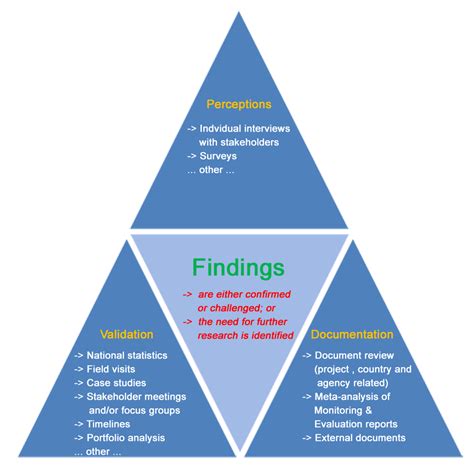Embarking on a weight loss journey often requires finding the ideal dietary approach that suits your needs, preferences, and goals. With a myriad of options available, selecting the right eating plan can be both exciting and overwhelming. However, understanding several key factors can significantly simplify this decision-making process and increase your chances of success.
Comprehending your individual body requirements is paramount when determining the most suitable diet plan. Consider factors such as your metabolism, activity level, and any specific health conditions or dietary restrictions you may have. By paying attention to your body's unique needs, you can tailor your eating regimen effectively.
Exploring the abundance of diet plans, characterized by diverse methodologies and emphases, is another essential step. Some diets may prioritize macronutrient compositions, such as low-carb or high-protein approaches, while others may emphasize portion control or specific food groups. Familiarize yourself with the main principles behind different diet plans to uncover which align with your personal preferences and health goals.
Seeking professional guidance can be highly advantageous in your quest for the perfect diet plan. Consulting with a registered dietitian or nutritionist can provide you with expert advice and personalized recommendations based on your specific circumstances. These professionals possess the knowledge and experience necessary to guide you towards the most appropriate nutritional approach for successful weight loss.
Assess Your Goals and Needs

Understanding your objectives and requirements is essential when it comes to finding the ideal eating plan for weight loss. Before embarking on any diet journey, it is crucial to take a step back and assess what you hope to achieve and what factors influence your decision.
Start by examining your weight loss goals. Are you aiming for a significant reduction in weight or simply looking to shed a few pounds? Determining the amount of weight you want to lose can help guide your choice of a suitable diet plan.
Consider your personal needs as well. Are you someone who prefers structure and strict guidelines, or do you prefer a more flexible approach? Understanding your preferences and lifestyle constraints will help you select a diet plan that aligns with your individual needs.
- Reflect on any dietary restrictions or allergies you have, as these will play a crucial role in choosing a plan that caters to your specific requirements.
- Evaluate your current eating habits and identify any areas where you may need to make changes. This will help you determine the level of commitment and adjustment required for different diet plans.
- Take into account any medical conditions or medications you are currently dealing with. It is important to consult with a healthcare professional to ensure that your chosen diet plan is safe and compatible with your health situation.
By thoroughly assessing your goals, preferences, restrictions, and health considerations, you will be better equipped to select a diet plan that is tailored to your unique needs. Remember, the right diet plan should not only help you achieve your weight loss goals but also be sustainable and enjoyable in the long run.
Consider Your Lifestyle and Preferences
One important factor to keep in mind when selecting a suitable diet plan for weight loss is to take into consideration your unique lifestyle and individual preferences for food choices. A diet that aligns with your lifestyle and caters to your personal preferences will not only make it easier to stick to, but it will also increase the likelihood of long-term success in achieving your weight loss goals.
The first step in considering your lifestyle is to assess your daily routine, including your work schedule, family commitments, and any other activities that may impact your eating habits. It's important to choose a diet plan that can easily be incorporated into your existing lifestyle without causing significant disruptions or stress.
Additionally, think about your food preferences and consider what types of foods you enjoy eating. Some diets may require you to restrict certain food groups or eliminate specific foods altogether, while others may allow for more flexibility and variety. By selecting a diet plan that includes foods you enjoy, you are more likely to stay motivated and find enjoyment in the process of losing weight.
An important aspect to consider is if you have any dietary restrictions, allergies, or medical conditions. Consult with a healthcare professional or a registered dietitian to ensure that the diet plan you choose is safe and appropriate for your specific needs.
Remember that there is no one-size-fits-all approach to dieting, and what works for one person may not work for another. By considering your lifestyle and preferences, you can find a diet plan that suits your individual needs and sets you up for long-term success in achieving your weight loss goals.
Consult with a Healthcare Professional

Seeking guidance from a healthcare professional can be invaluable when embarking on a weight loss journey. By consulting with a qualified expert, you can receive personalized advice and recommendations tailored to your unique needs and goals.
Engaging in a conversation with a healthcare professional will allow you to discuss your current health status, medical history, and any potential limitations or concerns you may have. This dialogue sets the foundation for creating a safe and effective diet plan that aligns with your specific requirements.
- A healthcare professional can assess your body composition, nutritional needs, and metabolism to determine the most suitable approach for weight loss.
- They can provide evidence-based information on various diet plans, debunking common myths and helping you make informed decisions.
- Moreover, a healthcare professional can monitor your progress, providing support and adjustments as needed to ensure long-term success.
In addition, consulting with a healthcare professional offers the opportunity to address any underlying health conditions or medications that may impact your weight loss journey. They can give you insight into how specific diets or supplements may interact with your current treatment plan.
Remember, a diet plan should not only focus on weight loss but also prioritize overall health and well-being. Seeking guidance from a healthcare professional ensures that you embark on a journey that is both sustainable and beneficial for your body and mind.
Exploring Different Diet Options
When embarking on a weight loss journey, it is crucial to thoroughly research and familiarize oneself with various diet plans tailored to individual needs and preferences. By exploring different types of diets, individuals can gain a clear understanding of the principles, restrictions, and benefits associated with each approach, allowing them to make an informed decision.
Evaluating the plethora of dietary options
One essential step in choosing the most suitable diet plan is to evaluate the plethora of dietary options available. From popular weight loss strategies like intermittent fasting and low-carb diets to specialized approaches such as Mediterranean and vegetarian diets, there is no shortage of choices. Each dietary approach has its unique emphasis and rules, providing diverse pathways towards achieving weight loss goals.
Finding the diet that fits your lifestyle
Another crucial factor to consider is finding a diet plan that aligns with an individual's lifestyle. It is important to assess factors such as personal dietary preferences, cultural background, and daily schedules when choosing a diet plan. The key is to opt for an approach that can be easily incorporated into one's daily routine and sustained over the long term, ensuring adherence and successful weight loss maintenance.
The role of professional guidance in selecting a diet
While researching different types of diets is valuable, seeking professional guidance and consulting with medical professionals or registered dietitians can provide additional insight and ensure the safety and effectiveness of the chosen diet plan. These experts can offer personalized recommendations based on an individual's specific needs, health conditions, and any potential interactions with medications or pre-existing health conditions.
By undertaking thorough research and evaluation of various diet options, individuals can make an informed decision about the most suitable diet plan for their weight loss journey. Taking into account personal preferences, lifestyle factors, and seeking professional expertise will contribute to a successful and sustainable path towards achieving weight loss goals.
Seek Scientific Validation and Research-Based Approaches

When embarking on a weight loss journey, it is essential to look for diet plans that are supported by evidence and scientific backing. By taking a research-based approach, you can ensure that the diet plan you choose is not only effective but also safe for your overall health and well-being.
Evidence-based: Opt for a diet plan that is backed by scientific studies and research. Look for studies published in reputable journals that support the claims and effectiveness of the diet plan. This will help you make an informed decision based on objective information rather than relying on anecdotal evidence or trendy fads.
Scientifically validated: A reliable diet plan should be based on scientific principles and methodologies. It should have undergone rigorous testing and clinical trials to demonstrate its efficacy in promoting weight loss and improving health markers. Look for research that has been conducted on a diverse population group to ensure that the results are applicable to various individuals.
Professional endorsements: Seek diet plans that have received endorsements from qualified healthcare professionals or nutrition experts. These endorsements serve as a further validation of the plan's effectiveness and safety. Professionals who have thoroughly reviewed the literature and evidence can provide insights and guidance on which diet plans are most suitable for your specific needs.
Long-term sustainability: Consider the long-term sustainability of the diet plan. A successful diet plan should not only help you achieve short-term weight loss goals but also provide you with a sustainable eating pattern that you can maintain in the long run. Look for diet plans that emphasize balanced nutrition, include a variety of food groups, and promote healthy habits rather than quick fixes.
Educate yourself: Take the time to educate yourself about different diet plans and the scientific principles behind them. By enhancing your understanding of nutrition and weight loss, you will be better equipped to evaluate the validity of various diet plans and make an informed decision. Consider consulting with a registered dietitian who can provide personalized advice and help you navigate through the maze of information.
In conclusion, when selecting a diet plan for weight loss, it is important to prioritize evidence and scientific backing. By basing your choices on validated research and professional endorsements, you can find a dietary approach that is effective, safe, and sustainable in the long term.
Evaluate the Nutritional Balance
When embarking on a journey towards achieving a healthier lifestyle, it is crucial to assess the nutritional balance of the chosen diet plan. Understanding the composition of the diet and ensuring that it provides a well-rounded combination of essential nutrients forms the foundation for sustainable weight loss and overall well-being.
Achieving a nutritional balance entails consuming the right proportions of macronutrients - proteins, carbohydrates, and fats - as well as an adequate intake of micronutrients such as vitamins and minerals. A balanced diet should also account for individual dietary preferences, cultural factors, and any potential underlying health conditions.
By evaluating the nutritional balance of a diet plan, one can determine if it aligns with their specific goals and requirements. This assessment involves examining the relative ratios of macronutrients, assessing the variety of foods included, and ensuring that the plan does not neglect any vital nutrients. A well-balanced diet helps support the body's functions, maintain a healthy metabolism, and promote sustainable weight loss.
Furthermore, paying attention to both the qualitative and quantitative aspects of the diet plays a pivotal role in achieving optimal nutritional balance. This involves assessing the quality of food sources, such as opting for whole, unprocessed foods whenever possible, and avoiding excessive intake of refined sugars and unhealthy fats.
Lastly, it is important to remember that nutritional balance is not a one-size-fits-all approach. Each individual's dietary needs and preferences may vary, and it is crucial to consult with a healthcare professional or registered dietitian to tailor a diet plan that suits their specific requirements.
Ensuring Safety and Identifying Potential Side Effects

When embarking on a journey towards weight loss, it is of utmost importance to prioritize safety and be aware of any potential side effects associated with the chosen diet plan. This section aims to provide valuable information on how to make informed decisions and ensure your well-being throughout your weight loss journey.
One crucial step in selecting the right diet plan is conducting thorough research to assess its safety and effectiveness. It is vital to understand the potential risks and side effects that may arise from adopting a particular diet. By investigating the scientific evidence and consulting reliable sources, you can gain insights into the potential impact on your overall health and wellbeing.
Additionally, it is essential to consider any personal factors that may influence the suitability of a diet plan for you. Everyone's body is unique, and individual differences such as medical conditions, allergies, or intolerances can play a significant role in determining the safety and compatibility of a specific diet. Consulting with a healthcare professional or a registered dietitian can provide valuable guidance in understanding how a diet plan may interact with your specific circumstances.
An important aspect of ensuring safety is to gradually introduce dietary changes and avoid drastic measures. Rapid weight loss methods may promise quick results, but they can also carry significant health risks. It is advisable to opt for a sustainable and balanced approach that allows your body to adjust gradually, minimizing the chances of adverse effects.
Lastly, keeping a close eye on your body's response to the chosen diet plan is crucial. Monitoring any changes in your physical and mental well-being will help you identify and address any potential side effects promptly. Should you experience any concerning symptoms, it is essential to seek professional advice and make any necessary adjustments to your diet plan.
Ultimately, prioritizing safety and being aware of potential side effects is essential in choosing the right diet plan for your weight loss journey. By arming yourself with knowledge and seeking professional guidance, you can embark on a sustainable and effective path towards achieving your goals while ensuring your overall well-being.
Consider the Long-term Sustainability
Planning for a lasting and sustainable approach to weight loss is crucial when choosing a diet plan. It is essential to look beyond quick fixes and consider strategies that can be maintained over the long term. This section focuses on the importance of finding a diet plan that not only helps in shedding pounds but also supports a healthy lifestyle and promotes overall well-being.
When selecting a diet plan, it is essential to prioritize long-term sustainability. Opting for a diet that is extreme, restrictive, or unrealistic can result in short-term success followed by relapses or rebound weight gain. Instead, finding a plan that emphasizes a balanced and moderate approach enables individuals to make realistic changes to their eating habits and navigate through challenges more effectively.
Ensuring long-term success requires understanding individual preferences and incorporating flexibility into the chosen diet plan. This enables the plan to fit seamlessly into one's lifestyle, making it easier to sustain. The right diet plan should include a variety of foods, allow occasional indulgences, and provide options for different dietary restrictions or preferences.
Another crucial aspect of sustainable weight loss is encouraging behavioral changes rather than just focusing on food choices. A diet plan that promotes conscious eating, mindful portion control, and regular physical activity can help establish healthy habits that are more likely to be maintained in the long run. Supporting emotional well-being and stress management is also essential, as these factors can significantly impact dietary choices and overall success.
In conclusion, when considering a diet plan for weight loss, it is vital to evaluate its long-term sustainability. By choosing a plan that is realistic, flexible, and focuses on overall well-being, individuals can make sustainable changes to their lifestyle and achieve lasting success in their weight loss journey.
Seek Support and Accountability

Obtaining assistance and ensuring accountability are crucial aspects of selecting an appropriate diet plan to achieve weight loss goals. Engaging in a diet journey can be challenging, and having a support system in place can significantly aid in successfully reaching desired outcomes.
When embarking on a weight loss journey, individuals should seek out like-minded individuals who share similar goals and aspirations. Connecting with others who are also on a path towards weight loss can provide a sense of camaraderie and motivation. This support can be found through various avenues, such as joining online communities, participating in local support groups, or even seeking guidance from healthcare professionals or registered dietitians.
Another vital component of a successful weight loss plan is accountability. Being accountable to oneself and others plays a significant role in adhering to a chosen diet plan. Holding oneself responsible for dietary choices, exercise routines, and overall lifestyle changes contributes to staying on track and meeting weight loss goals. It is important to establish a system where progress is measured and monitored regularly. Tracking food intake, recording physical activity, and regularly weighing oneself can provide valuable feedback and keep individuals accountable for their actions.
- Join online communities or local support groups to connect with others sharing similar weight loss goals.
- Seek guidance from healthcare professionals, such as registered dietitians, for expert advice and support.
- Hold yourself accountable by tracking food intake, recording physical activity, and regularly weighing yourself.
By seeking support and creating an environment of accountability, individuals can enhance their chances of success when choosing a diet plan for weight loss. The presence of a supportive community and the act of regularly monitoring progress can provide the necessary motivation and encouragement needed to stick to the chosen plan and achieve desired results.
Listen to Your Body and Make Adjustments as Needed
In the pursuit of achieving a healthier body and weight, it is crucial to develop a diet plan that not only aligns with your goals but also recognizes the uniqueness of your body. This involves understanding and acknowledging the signals your body sends, and adjusting your diet accordingly.
1. Pay attention to your hunger and fullness cues: One of the first steps in listening to your body is becoming aware of when you are truly hungry and when you are satisfied. This means being attentive to your body's signals of hunger, such as stomach growling or feeling low on energy, and responding by eating nutrient-rich foods. Similarly, recognizing when you are comfortably full and stopping eating at that point can prevent overeating.
2. Consider your energy levels and cravings: Your body often communicates its needs through energy levels and cravings. If you find yourself feeling excessively tired or lacking motivation, it may be a sign that your current diet plan is not providing enough fuel. Take note of specific cravings as well, as they might indicate a deficiency in certain nutrients. Making adjustments to your diet to address these needs can help improve overall energy levels and reduce cravings.
3. Monitor changes in mood and digestion: Your mood and digestive system can also offer insights into the effectiveness of your diet plan. Certain foods may cause mood swings or digestive discomfort, which can be indicators of sensitivities or intolerances. By keeping track of any correlations between your diet and these symptoms, you can make informed adjustments to optimize your meal choices and promote better overall well-being.
4. Assess your progress and adjust your plan: Regularly evaluate your progress towards your weight loss goals and make necessary adjustments to your diet plan. This may involve tweaking portion sizes, modifying the nutrient composition of meals, or experimenting with different meal timings. Remember that each person's journey is unique, and what works for one individual may not work for another. Stay attuned to your body's responses and adapt your diet plan accordingly for optimal results.
By listening to your body and making adjustments as needed, you can create a diet plan that not only aids in weight loss but also promotes long-term health and well-being. This personalized approach acknowledges the individuality of each person's body and provides a foundation for sustainable lifestyle changes.
FAQ
What should I consider when choosing a diet plan for weight loss?
When choosing a diet plan for weight loss, there are several factors you should consider. First, consider your personal goals and preferences. Do you have any specific dietary restrictions or preferences? Additionally, consider the long-term sustainability of the diet plan, as crash diets often result in short-term weight loss followed by weight regain. It is also essential to choose a diet plan that promotes balanced nutrition and includes a variety of foods from different food groups.
Are there any specific diet plans that are recommended for weight loss?
There are various diet plans available for weight loss, and the suitable one depends on individual preferences and needs. Some popular diet plans include the Mediterranean diet, which focuses on whole foods such as fruits, vegetables, whole grains, and lean proteins. Another option is the low-carb or ketogenic diet, which restricts carbohydrate intake and promotes the consumption of healthy fats and proteins. Ultimately, it is important to choose a diet plan that is sustainable and aligns with your lifestyle.
How can I ensure that the diet plan I choose is safe and effective for weight loss?
Ensuring the safety and effectiveness of a diet plan is crucial for weight loss. It is recommended to consult with a healthcare professional or registered dietitian before starting any new diet plan. They can provide personalized guidance based on your health status, dietary needs, and weight loss goals. Additionally, consider the credibility of the diet plan by researching scientific evidence, user testimonials, and reviews. Avoid diet plans that promise rapid weight loss or require the exclusion of entire food groups, as they can be harmful to your health.



